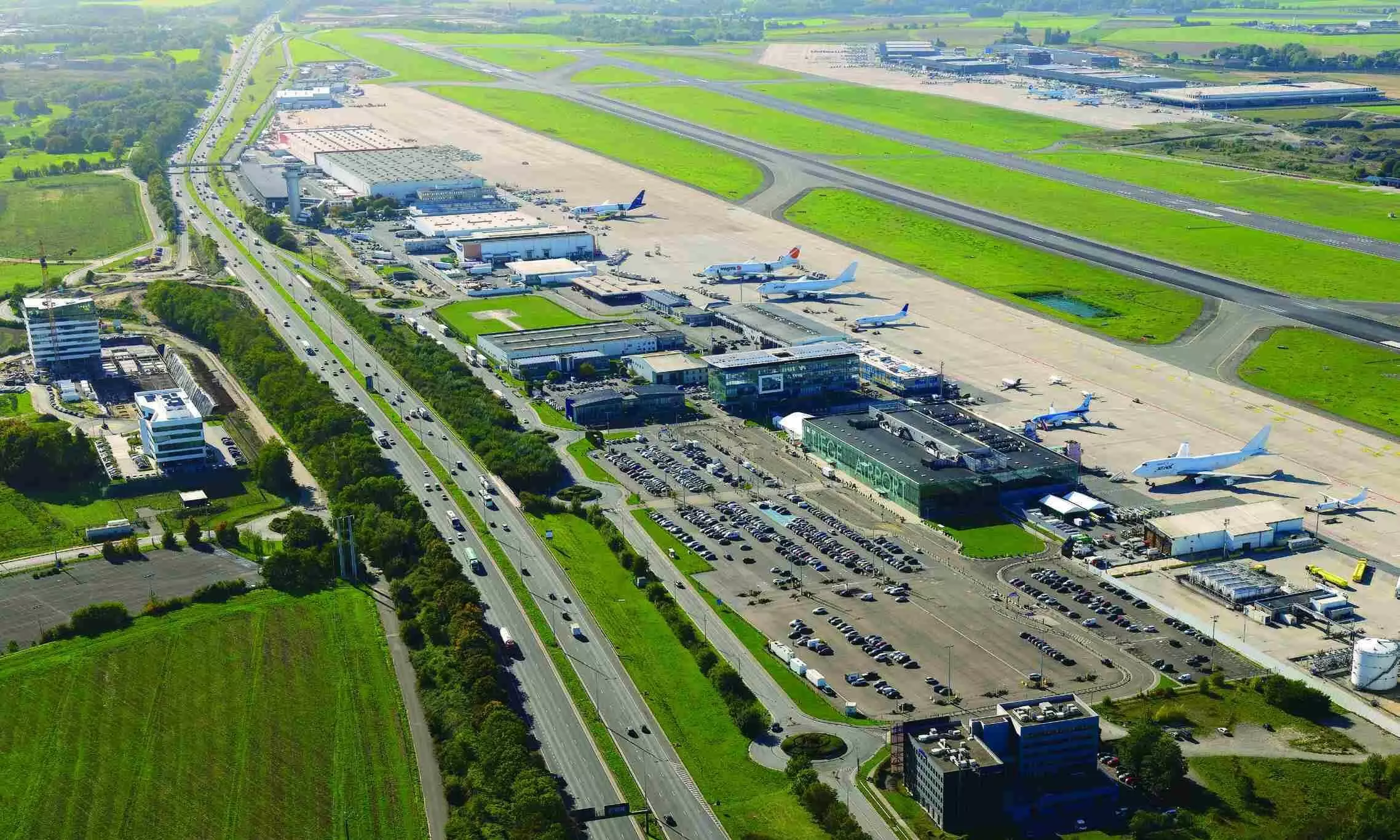
Spirit of Benelux: The union that forged a logistics giant in Europe

Liege Airport
Celebrating 80 years of unified economic collaboration, the Benelux region — Belgium, the Netherlands, and Luxembourg — stands as a vital logistics and air cargo hub in Europe. Anchored by major air cargo facilities, the region’s logistics community plays a pivotal role in sustaining its economic dynamism and ensuring seamless movement of goods across borders.
On September 5, 2024, Belgium, the Netherlands and Luxembourg celebrated Benelux Day, for the first time, and the 80th anniversary of the Benelux Customs Agreement to mark strong ties between the three countries. It was on this very day eighty years ago in 1944 that these three independent sovereign governments, then in exile, signed the Netherlands–Belgium–Luxembourg Customs Convention in London and decided to stay together closely. The cooperation was further strengthened in 1958 by signing the Benelux Treaty establishing the Benelux Economic Union. Citing the economic collaboration between the states, the Benelux Union calls itself “a living lab for the European Union.”
The strong ties have also made Benelux economically dynamic and prosperous. For instance, according to the Union, with 1.7 percent of the European territory and 5.6 percent of the European population, it generates 7.9 percent of Europe’s Gross Domestic Product (GDP).
The strong economic potential of the region needs a robust logistics infrastructure to maintain its reputation for excellence in the logistics and transport sector. Thus, it is no wonder that airports in Benelux turn out to be economic powerhouses in the region.
For instance, this is how Dimitri Bettoni, Head of Cargo - Product & Network Development at Brussels Airport Company, describes the role played by the airport in the country’s economy, “The airport creates an annual total economic impact of €8.8 billion, about 2 percent of gross domestic product, maintaining our position as Belgium’s second economic engine. Brussels Airport creates 85,000 direct and indirect jobs.”
Located in the heart of Europe and connected to 220 destinations worldwide, Brussels Airport handled 701,000 tonnes of cargo in 2023.
The airports also help to move goods and complement other major transportation hubs in the Benelux region, such as the ports of Antwerp and Rotterdam, which are some of the biggest ports in the world.
“The airport complements the industrial and manufacturing sectors of the Benelux region by providing just-in-time logistics for various industries such as automobile, aerospace, chemicals, and pharmaceuticals.”
Frédéric Brun, Liege Airport
For instance, Frédéric Brun, Head of Commercial Cargo and Logistics at Liege Airport, pointed out that the airport handles large volumes of international freight, particularly from North America, Asia, and Africa, making it a key player in global trade.
“With the rise of e-commerce (e.g., via Amazon and Alibaba), Liège Airport has become a central hub for handling express parcels,” he said.
This supports the region’s role as a gateway for imports to Europe and a distribution centre for European exports and according to Brun, “particularly in luxury goods, pharmaceuticals, and automotive parts.”
“The airport complements the industrial and manufacturing sectors of the Benelux region by providing just-in-time logistics for various industries such as automobile, aerospace, chemicals, and pharmaceuticals. Major manufacturers in the region, including those in Wallonia’s heavy industries and Luxembourg’s high-tech sectors, benefit from Liège’s quick access to global supply chains.”
Liège Airport is also a major employment centre in the region with over 11,000 jobs created directly and indirectly.
By serving as a hub for high-value industries, the airports directly support the broader economic agenda of the Benelux region, promoting growth in key sectors like logistics, technology, and advanced manufacturing.
Brun foresees the Benelux region as a vital player in Europe's — and the world’s — supply chains for decades to come.
“The future of the Benelux region is one of continued economic integration, sustainability, and leadership in logistics and innovation,” he said.
According to him, Liège Airport will play a central role in this future by acting as a key hub for e-commerce, enhancing multimodal connectivity, and leading in green logistics.
“Its contributions will support the region's ambitions to maintain its competitive edge in global trade while balancing economic growth with environmental sustainability,” he added.
“Maastricht Aachen Airport is an eastern air gateway for the Benelux region. In the spirit of Benelux, we are working on closer digital and customs integration with Amsterdam Schiphol Airport.”
Dean Boljuncic, Maastricht Aachen Airport
Meanwhile, Dean Boljuncic, Head of Commercial Development of Maastricht Aachen Airport (MST), took the example of the pharmaceutical industry.
“The cooperation between the three constituent countries has the potential to boost trade through the removal of barriers between the three economies,” he said.
“Pharma is a growing industry in the Benelux region, and current forecasts show further growth in the coming years. Air cargo is a critical transport method for this industry, as the Covid-19 pandemic showed, and MST will continue to make sure our export capacity reflects the success of our region,” he added.
According to Statista, the revenue in the Pharmaceuticals market in Benelux is projected to reach $11.83bn in 2024.
Boljuncic thinks MST is invaluable to the Dutch economy and the wider Benelux region.
“Maastricht Aachen Airport (MST) is an eastern air gateway for the Benelux region, with high-quality cargo handling and a hub which complements the Benelux trade network,” he said.
He pointed out that in the spirit of Benelux integration and communication, they are working on closer digital integration and customs integration with Amsterdam Schiphol Airport (AMS).
In June 2023, Royal Schiphol Group purchased a 40 percent stake in MST, becoming the second shareholder in the airport alongside the province of Limburg.
In December 2023, the trade association for the air freight industry in the Netherlands Air Cargo Netherlands (ACN) announced a new branch for the Maastricht region.
Boljuncic said, “The Air Cargo Netherlands office that was set up in Maastricht shows the investment in MST as a great option for cargo routes, alongside our €35 million investment in our new runway last year.”
ACN Maastricht has been set up to unite the air cargo community surrounding Maastricht Aachen Airport, with a primary focus on shaping the future development of the hub.
“At MST we encourage collaboration with partners to design and promote sustainable aviation and cargo,” he added.
“Our proximity to Rotterdam and other ports and hubs allows us to support wider Western Europe operations while we play our role in facilitating import/export trade for the Netherlands region.”
Luc Scheidel, Amsterdam Airport Schiphol
The Netherlands is well-known for its strong and high-performing logistics industry, consistently at the top of the Logistic Performance Index rankings, in 2023 it ranked third place globally.
Luc Scheidel, Cargo Strategy & Innovation Director, Amsterdam Airport Schiphol, pointed out that the Netherlands region plays an important role with Rotterdam, Europe’s largest seaport and Amsterdam Airport Schiphol, the world’s second most connected airport.
“Our proximity to Rotterdam and other ports and hubs allows us to support wider Western Europe operations while we play our role in facilitating import/export trade for the Netherlands region,” he said.
“The transportation of pharmaceuticals, for example, is crucial to the Dutch society, and the vaccine gateway at AMS during and since the Covid-19 pandemic, has made sure critical shipments have reached their final destinations safely and speedily,” he added.
Schiphol handled nearly 750,000 tonnes of cargo in the first half of this year with 303 connected destinations, achieving a 9 percent growth in freighter capacity in the first 6 months of 2024.
“Luxembourg has developed expertise in handling high-value cargo, such as pharmaceuticals, fashion goods, and aircraft engines, which are important industries for the Benelux region.”
Ram Menon, Wallenborn Transports
Ram Menon, Group Chief Commercial Officer, Wallenborn Transports, noted that Luxembourg is also strategically located, along with other Benelux countries, allowing for quick access to major cities like Amsterdam, London, Paris, and Frankfurt within a truck transit time of around 8 hours which makes Luxembourg a key hub for cargo transportation in the region.
Wallenborn Transports had a fleet of about 1500 trucks and trailers, with a core fleet based in Luxembourg and Belgium. The top commodities handled by Wallenborn include high-value cargo, pharmaceuticals, aircraft engines, and e-commerce.
He pointed out that Luxembourg's airport is a major cargo hub that handles a significant volume of imports and exports for the Benelux region as well as the all-cargo carrier Cargolux which utilises the airport for its hub-and-spoke network, with cargo coming in and out of Luxembourg to be distributed throughout the region and beyond.
“In addition to Cargolux, the home carrier, Luxembourg's airport has attracted a variety of other airlines, including Qatar Airways, China Airlines, and China Southern, further strengthening its position as a cargo hub. Luxembourg has developed expertise in handling high-value cargo, such as pharmaceuticals, fashion goods, and aircraft engines, which are important industries for the Benelux region,” he said.
He also noted that Luxembourg faces some challenges as a legacy airport, such as limited expansion capabilities. According to him, the emergence of challenger airports like Liege presents both competition and opportunities for Luxembourg to adapt and maintain its relevance.
Wallenborn Transports has a strong focus on niche products with high risk and high reward, such as high-value cargo. Wallenborn specialises in transporting high-value cargo, such as fashion goods, perfumes, and other luxury items from Italy into Luxembourg.
“We have designed their trailers to be essentially "vaults on wheels" to handle these valuable shipments,” as he puts it. Wallenborn has also built up a significant business in the aerospace sector, transporting large and valuable aircraft engines,” he added.
As Benelux continues to expand its logistics capabilities and deepen cooperation within its air cargo community, it solidifies its place as a key pillar of Europe’s supply chain. Focused on innovation and sustainability, the region's air cargo infrastructure supports critical industries and positions Benelux as a driving force in global logistics.
Looking ahead, Benelux’s logistics infrastructure, buoyed by a close-knit air cargo community, will continue to play a critical role in global trade flows and innovation. With a shared commitment to sustainability and economic resilience, the Benelux region is poised to not only retain but amplify its status as Europe’s gateway to the world—ensuring that it remains a key player in shaping the future of global logistics.
This was originally published in the November 2024 issue of The STAT Trade Times.

